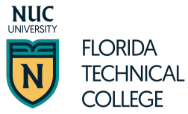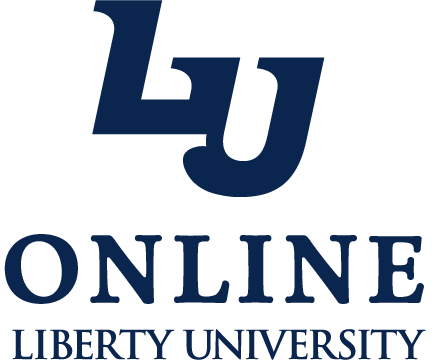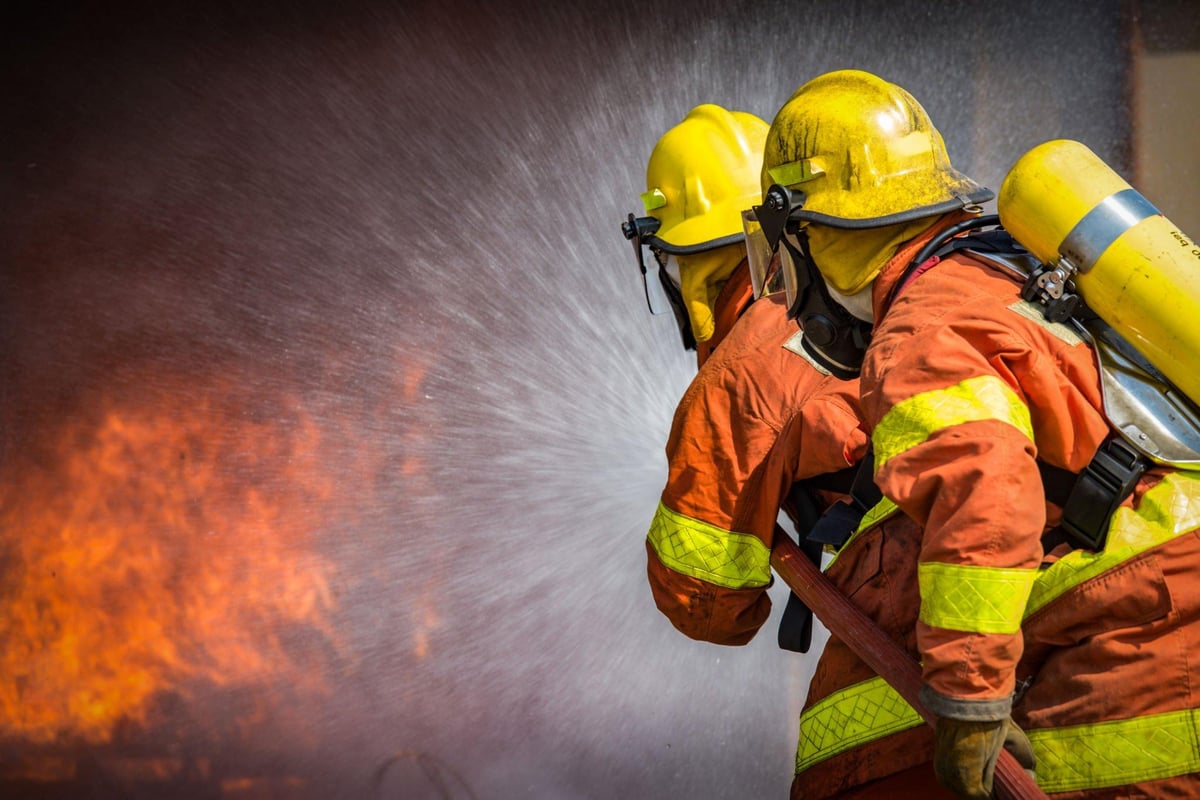Fire Science classes near me in Orlando
In the Orlando metro area, the average cost of a class is $9500 and the average class length is approximately 47 weeks long
Trade and industry classes near
Orlando, FL 32801Online classes
Financial aid
Certificate
Short classes

Florida Technical College - Orlando
Electrical - Diploma
- Earn a diploma in just 9 months.
- Hands-on training in electrical installation and repairs.

Florida Technical College - Orlando
Electrical with PLC - Diploma
- Earn a diploma in just 12 months.
- Hands-on training in electrical installation and repairs.

Liberty University Online
BS: Civil Engineering
- Online, completion in as little as 42 months.
- Option to transfer credits for up to 75% of the entire degree.
Fire Science classes near me in Orlando
Are you interested in a career in fire science? If you live in Orlando, you're in luck! There are several fire science classes available in your area that can help you start your journey towards becoming a firefighter or pursuing other fire-related careers. In this blog post, we will explore what fire science is, the training requirements, what to look for in a class, what to expect from the day-to-day class, the certification process, how to find related jobs, and other classes you can take after becoming a fire science professional.

Introduction
Fire science is the study of the behavior, prevention, and suppression of fires. It involves understanding the science behind fire and how it spreads, as well as learning techniques and strategies to prevent, control, and extinguish fires. Fire science professionals play a crucial role in protecting lives and property from the devastating effects of fires.
What is Fire Science?
Fire science is a multidisciplinary field that combines elements of chemistry, physics, engineering, and emergency management. It involves studying the science behind fires, including how they start, how they spread, and how they can be extinguished. Fire science professionals also learn about fire prevention, safety protocols, and emergency response strategies.
Training Requirements
To become a fire science professional, you will need to complete a fire science training program. These programs are typically offered by community colleges, vocational schools, and fire academies. The specific training requirements may vary depending on the state and the type of career you are pursuing, but some common requirements include:
- High school diploma or equivalent
- Minimum age requirement (usually 18 or 21 years old)
- Physical fitness requirements
- Background check and drug screening
What to Look for in a Class
When choosing a fire science class, it's important to consider several factors to ensure you are getting the best education and training possible. Here are some things to look for:
- Accreditation: Make sure the program is accredited by a reputable accrediting agency. This ensures that the program meets certain standards of quality and that your certificate or degree will be recognized by employers.
- Experienced Instructors: Look for classes taught by instructors with real-world experience in the field of fire science. They can provide valuable insights and practical knowledge.
- Hands-on Training: Fire science is a hands-on field, so look for classes that offer practical training exercises and simulations. This will give you the opportunity to apply what you have learned in a real-world setting.
- Job Placement Assistance: Some programs offer job placement assistance to help graduates find employment after completing their training. This can be a valuable resource as you start your career.
What to Expect from the Day-to-Day Class
Fire science classes typically involve a combination of classroom lectures, hands-on training, and practical exercises. Here are some things you can expect from your day-to-day class:
- Classroom Lectures: You will learn about the science of fire, fire behavior, fire prevention strategies, emergency response protocols, and other related topics through lectures and discussions.
- Hands-on Training: You will have the opportunity to practice firefighting techniques, use firefighting equipment, and participate in simulations and drills.
- Physical Fitness Training: Firefighters need to be physically fit to perform their duties effectively. You may be required to participate in physical fitness training sessions to improve your strength, endurance, and agility.
- Teamwork and Collaboration: Firefighters work as part of a team, so you can expect to participate in group activities and learn how to work effectively with others.
The Certification Process
After completing your fire science training, you will need to obtain certification to work as a firefighter or in other fire-related roles. The certification process may vary depending on the state and the specific career you are pursuing, but it typically involves the following steps:
- Written Examination: You will need to pass a written exam that tests your knowledge of fire science principles, firefighting techniques, and safety protocols.
- Physical Agility Test: Firefighters need to be physically fit, so you will need to pass a physical agility test that measures your strength, endurance, and agility.
- Interview: Some certification processes may include an interview to assess your communication skills and suitability for the role.
- Background Check and Drug Screening: Before being certified, you will need to undergo a background check and drug screening to ensure you meet the necessary requirements.
How to Find Related Jobs
Once you have completed your fire science training and obtained certification, you can start looking for related jobs. Here are some resources to help you in your job search:
- Job Boards: Check online job boards such as Indeed, Monster, and CareerBuilder for fire science job postings. You can search by location and job title to find relevant opportunities.
- Networking: Reach out to contacts in the fire science field, such as instructors, fellow students, and professionals in the industry. They may be able to provide leads and recommendations for job openings.
Other Classes to Take
Once you have become a fire science professional, there are several other classes you can take to further enhance your skills and knowledge. Some options include:
- Advanced Firefighting Techniques: Learn advanced firefighting strategies and techniques to handle complex fire situations.
- Emergency Medical Services: Gain medical training to provide emergency medical care in addition to firefighting duties.
- Hazardous Materials Management: Learn how to handle and mitigate hazardous materials incidents.
- Incident Command System: Develop leadership skills and learn how to manage emergency situations effectively.
- Fire Investigation: Learn how to determine the cause and origin of fires through investigation techniques.
Final Thoughts
If you are interested in a career in fire science, there are several classes available in Orlando that can help you get started. By completing a fire science training program and obtaining certification, you can pursue a rewarding career in firefighting or other fire-related roles. Remember to consider factors such as accreditation, experienced instructors, hands-on training, and job placement assistance when choosing a class. And don't forget to explore other classes and opportunities to further enhance your skills and knowledge in the field. Good luck on your fire science journey!
Dreambound simplifies your start in this field with tailored guides for various cities. If life takes you elsewhere or you're thinking about a move, our other guides can help you figure out what to expect.
- How to Become a Firefighter in Arkansas
- How to Become a Firefighter in Kentucky
- How to Become a Firefighter in Minnesota
- How to Become a Firefighter in Oklahoma
- How to Become a Firefighter in Washington
Weighing the possibilities of a career shift ? Dreambound has written many extensive guides to guide you in making informed decisions. Check out some of these resources below:
FAQ
What is Dreambound?
Dreambound is the largest platform for students to find career & technical training programs. While we can't guarantee a career outcome, our mission is to provide all the information you need to find the perfect program for you.
What programs do you offer?
Dreambound has over 70 programs across healthcare, technology, business, and industrial trades. This includes programs such as Medical Billing, Cybersecurity, and welding.
Do you offer financial aid?
Some of our schools offer financial aid for those who qualify. Many others offer payment plans, where you can pay the cost of class over time.
Is it possible to do online classes?
Yes, Dreambound offers many online programs. On Dreambound's search, you can filter by online, in-person, and hybrid (part online, part in-person).